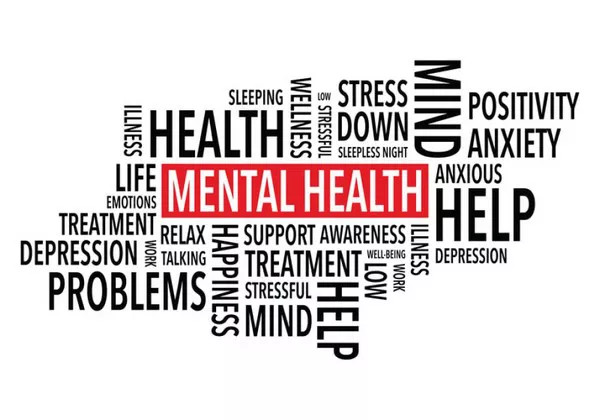Stigma surrounding mental illness is a pervasive and deeply rooted issue in society. It refers to the negative attitudes, beliefs, stereotypes, and discrimination that people with mental health conditions often encounter. The consequences of stigma can be far-reaching and profound, affecting not only the individual’s mental health but also their overall well-being, access to treatment, and social integration. In this article, we will explore how stigma affects people with mental illness, the various dimensions of this impact, and the importance of reducing stigma to promote mental health equity.
The Multi-Faceted Impact of Stigma
Delayed or Avoidance of Treatment: Stigma can deter individuals from seeking help for their mental health conditions. Fear of judgment or discrimination may lead people to delay or avoid treatment altogether, resulting in the worsening of their mental health symptoms and a decreased chance of recovery.
Negative Self-Perception: Internalized stigma, where individuals begin to believe the negative stereotypes associated with mental illness, can lead to feelings of shame, low self-esteem, and a diminished sense of self-worth. This can exacerbate mental health symptoms and hinder recovery.
Social Isolation: Stigmatizing attitudes can result in social isolation and withdrawal. Individuals with mental illness may fear rejection or discrimination, causing them to distance themselves from friends, family, and community activities, further impacting their mental health and overall quality of life.
Employment Discrimination: People with mental health conditions often face discrimination in the workplace. Employers may be reluctant to hire or promote individuals with mental illnesses due to unfounded fears about their performance or stability, limiting their career opportunities and financial well-being.
Impact on Physical Health: Stigma can negatively affect physical health as well. The stress and discrimination associated with mental illness stigma can contribute to physical health problems such as high blood pressure, heart disease, and a weakened immune system.
Reduced Treatment Adherence: The fear of stigma can lead to reduced treatment adherence. Individuals may discontinue medication or therapy prematurely, which can hinder recovery and potentially lead to relapse.
Loss of Opportunities: Stigmatization can lead to missed educational and professional opportunities. Individuals may be discouraged from pursuing their goals and aspirations, limiting their personal development and potential for success.
Financial Burden: The economic consequences of stigma are significant. People with mental health conditions may face higher healthcare costs, lost income due to unemployment or underemployment, and increased reliance on public assistance programs.
Suicidal Ideation and Behavior: The weight of stigma can contribute to feelings of hopelessness and despair. Some individuals may experience suicidal ideation or engage in self-harm as a result of the emotional distress caused by stigma.
Reducing Stigma for Improved Mental Health
Reducing stigma surrounding mental illness is not only a moral imperative but also essential for promoting mental health equity and improving the well-being of individuals and communities. Here are some strategies to combat stigma:
Education and Awareness: Increasing public awareness and understanding of mental health conditions is crucial. Education campaigns and initiatives can challenge stereotypes and provide accurate information about mental illness.
Open Dialogue: Encourage open and honest conversations about mental health. Sharing personal stories and experiences can help reduce stigma and create a more supportive environment for those with mental illness.
Media Responsibility: Media plays a significant role in shaping public perception. Encourage responsible reporting and portrayal of mental health in the media to avoid perpetuating stereotypes.
Anti-Stigma Programs: Support and participate in anti-stigma programs and campaigns that aim to reduce discrimination and promote inclusivity.
Legislation and Policies: Advocate for policies and legislation that protect the rights of individuals with mental health conditions, including anti-discrimination laws in the workplace and mental health parity in healthcare.
Mental Health Promotion: Invest in mental health promotion and prevention programs that address mental health holistically and reduce the stigma associated with seeking help.
Peer Support: Peer support groups and networks can be invaluable for individuals with mental illness. Connecting with others who have similar experiences can provide validation and a sense of belonging.
Mental Health Services: Ensure access to quality mental health services and support. Reducing barriers to treatment, such as affordability and availability, can encourage people to seek help without fear of stigma.
Training and Education: Train healthcare professionals, educators, and employers on mental health issues, cultural competence, and the importance of reducing stigma in their respective fields.
Promote Resilience: Promote resilience and coping skills among individuals with mental health conditions. Empowering people to manage their mental health effectively can reduce the impact of stigma.
Conclusion
Stigma surrounding mental illness continues to be a significant barrier to mental health equity and well-being for millions of individuals worldwide. The consequences of stigma are far-reaching, affecting not only mental health but also physical health, employment, social integration, and overall quality of life. Recognizing the multi-faceted impact of stigma and taking proactive steps to combat it are essential for creating a more inclusive and supportive society.
Reducing stigma requires collective effort, from educational initiatives to legislative changes and fostering open dialogue. By challenging stereotypes, promoting awareness, and providing accessible mental health services, we can work towards a future where individuals with mental health conditions are treated with dignity, respect, and compassion, and where they have the opportunity to live their lives to the fullest.


